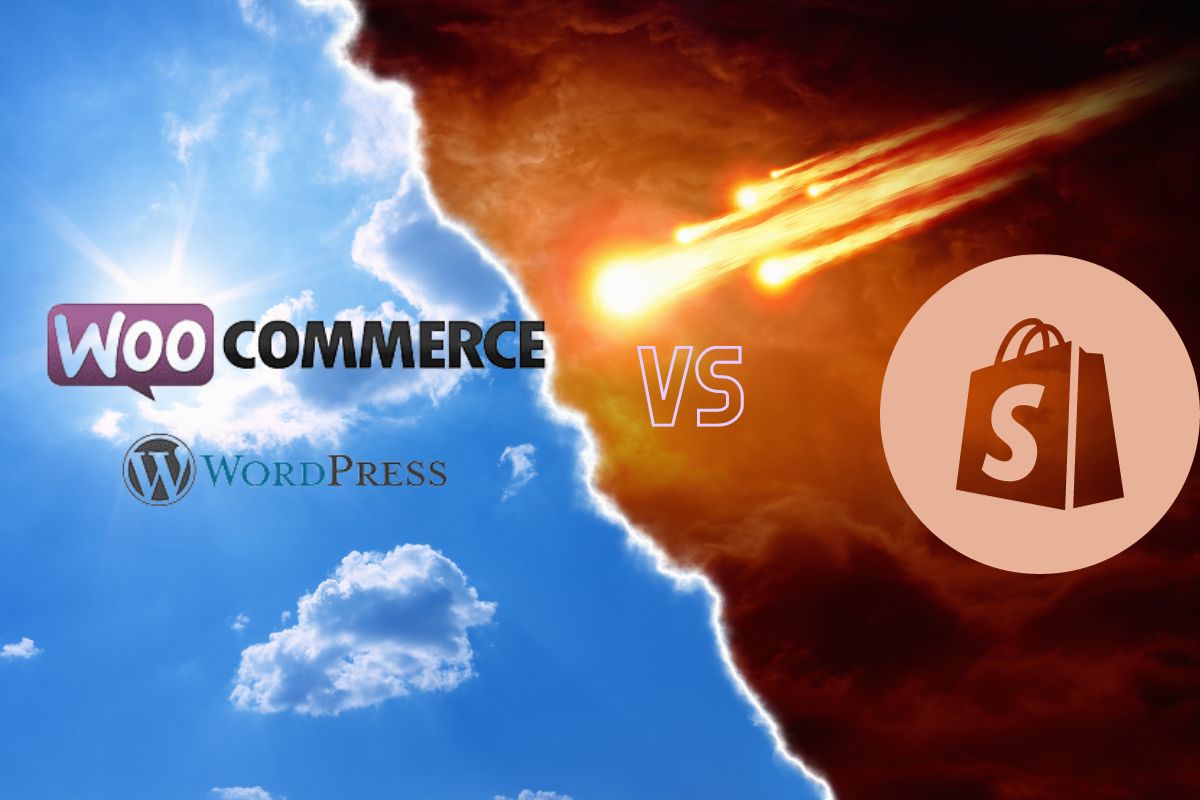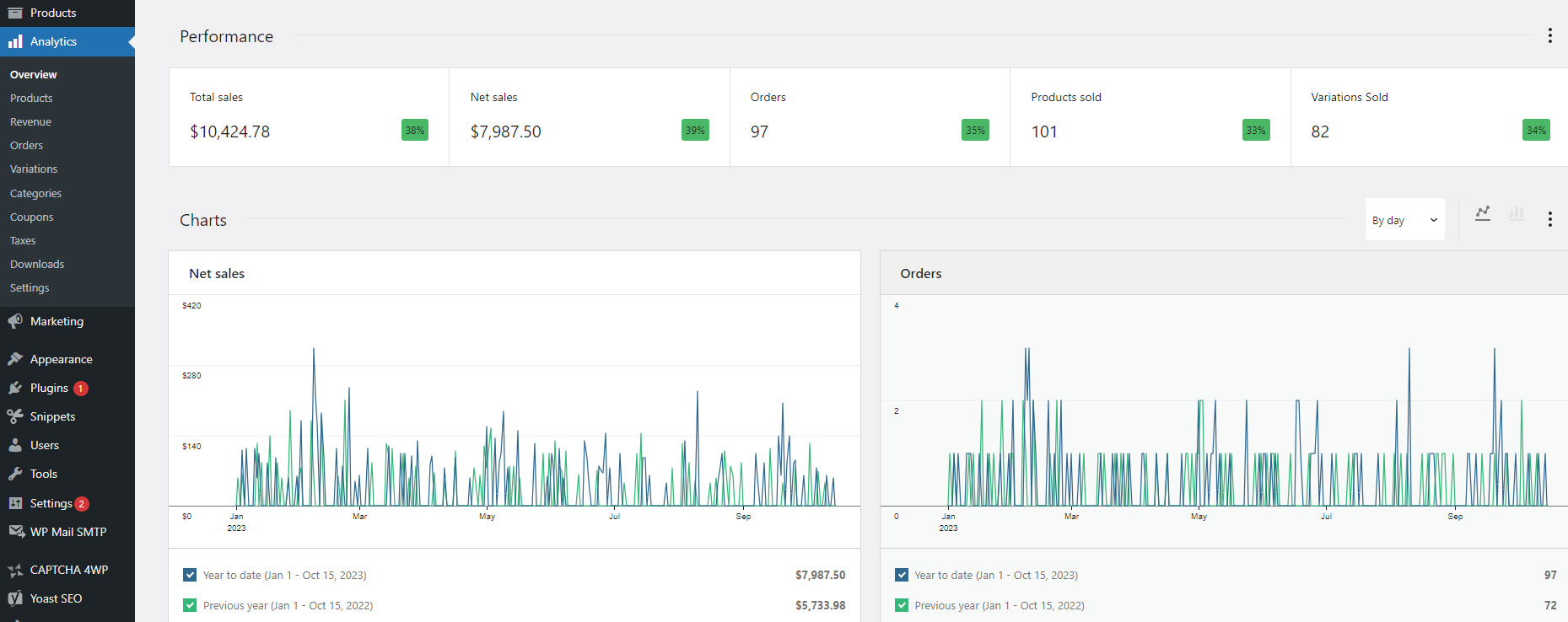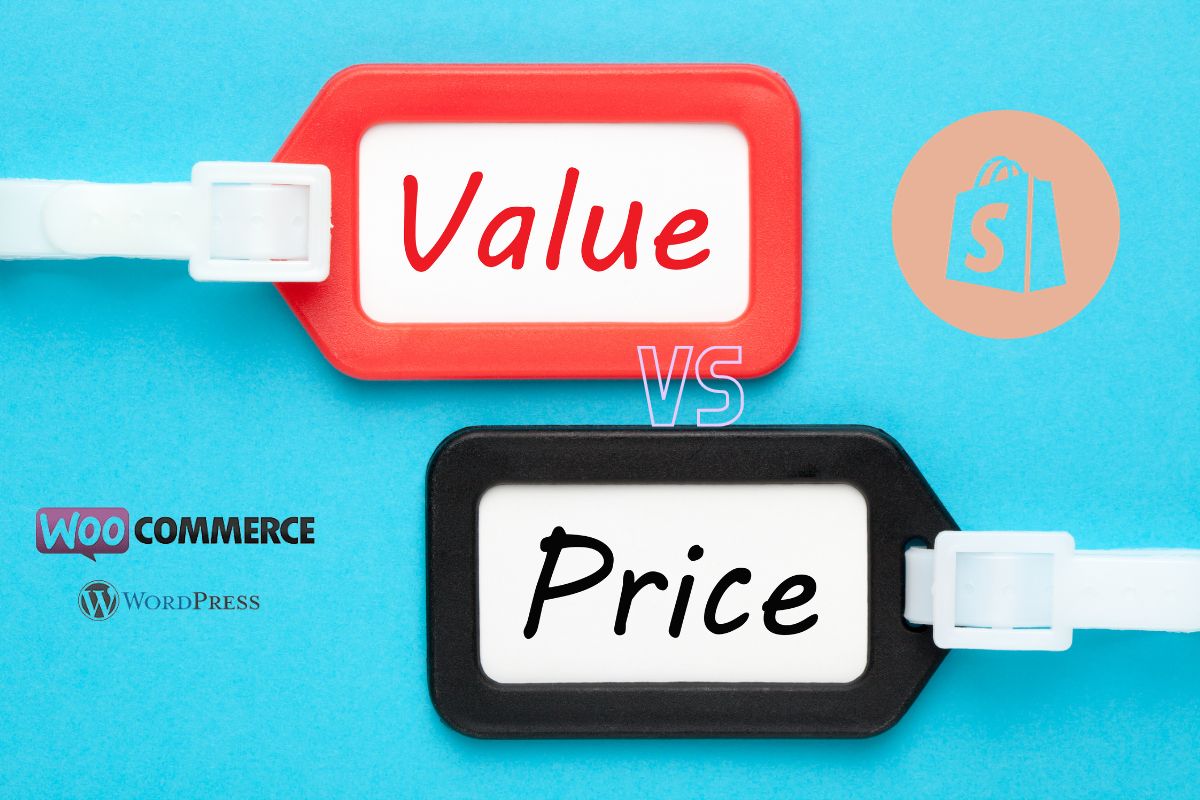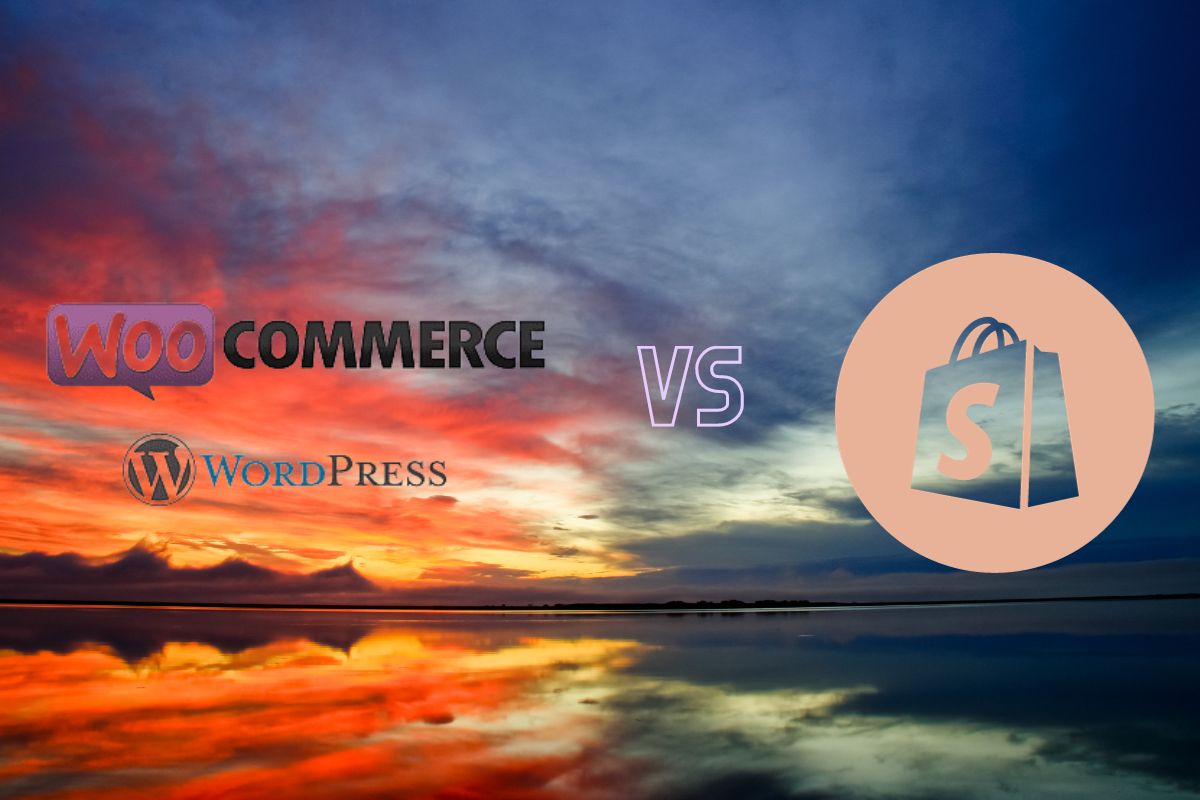Choosing the right Ecommerce platform – WooCommerce vs Shopify for small business owners
Small business owners are often faced with the difficult decision of choosing the right e-commerce platform for their needs. This article will analyze and compare two popular e-commerce platforms, WooCommerce and Shopify, in order to help small business owners make an informed decision.
We have been building Ecommerce website for the last 15+ years. Often our clients are asking us which Ecommerce platform they should use for their business. In this articles we will evaluate key features, pros and cons, cost comparison, and ease of use for both WooCommerce and Shopify platform. Ultimately, this article will offer helpful insights to help small business owners make the best choice for their business.
Key Takeaways
– WooCommerce is an open-source platform that offers flexibility, accessibility, and extensive customization options.
– Shopify is a hosted platform that provides simplicity, security, and reliable customer support.
– WooCommerce requires advanced coding knowledge and regular maintenance, while Shopify is easier to use and requires less technical expertise.
– The cost comparison shows that while WooCommerce is free, it can be more expensive in the long run due to hosting and additional annual plugin costs, while Shopify offers all-in-one hosting with monthly fees.

What is WooCommerce?
WooCommerce is an open-source e-commerce plugin for WordPress. It allows users to set up and manage an online store easily and efficiently. With WooCommerce, users can sell physical and digital products, manage inventory, handle payment processing, set up shipping options, and customize their online store to meet their specific business needs. It offers a range of extensions and themes to enhance functionality and design of the store. Overall, WooCommerce is a popular and versatile solution for businesses looking to establish a successful online presence.
Over 3.5 million websites use WooCommerce checkout (Source: MobiLoud).
What is Shopify?
Shopify is an e-commerce platform that allows businesses to create and manage their own online stores. It provides a wide range of tools and features to help businesses set up and customize their websites, manage inventory, process payments, and track orders. Shopify also offers various marketing and SEO resources to help businesses attract customers and grow their online presence.
There are over 3.9 million live websites using Shopify (Source: MobiLoud).
Evaluating Key Features of WooCommerce vs Shopify
As a small business owner, it is important to evaluate the key features of both WooCommerce and Shopify in order to make an informed decision about which e-commerce platform is right for you.
WooCommerce is an open-source platform that is free to use and has a wide range of customizable features. It is a great platform for those who have advanced coding knowledge and want to take control of their online store.
Shopify, on the other hand, is a hosted platform that has a flat monthly fee and offers a comprehensive suite of tools for managing an online store. It is an ideal platform for those who want to create an online store without needing to learn coding.
Both platforms offer a wide range of features, such as payment gateways, shipping management, and product management. However, they differ in terms of user-friendliness and customization. WooCommerce requires more technical knowledge to set up and customize, while Shopify is easier to use and requires less technical knowledge.
Additionally, WooCommerce offers greater flexibility and scalability, while Shopify is more limited in terms of customization and scalability.
Ultimately, it is important to consider both platforms and their features before making a decision. Depending on your needs and preferences, one platform may be better suited for your business than the other. It is important to take the time to evaluate the features of each platform before committing to one.
Pros and Cons of WooCommerce store and Shopify
Both WooCommerce and Shopify have their own pros and cons, and it is important to weigh them carefully before choosing the right e-commerce platform for your small business.
Here are some of the advantages and drawbacks to consider:
WooCommerce Pros:
* Flexibility: WooCommerce is an open-source platform, so users have greater control over their store’s appearance and functionality.
* Accessibility: With no monthly fees, WooCommerce is a great solution for small businesses on a budget.
* Customization: WooCommerce allows users to customize their store with a variety of themes and plugins.
WooCommerce Cons:
* Setup: Setting up an e-commerce store using WooCommerce can be a time-consuming process.
* Maintenance: WooCommerce requires more maintenance than some other e-commerce platforms, such as Shopify, which may be a burden for some small business owners.
* Security: Users are responsible for their own store security, which may be a concern for some business owners.

Shopify Pros:
* Simplicity: Shopify is easy to setup and use, making it an attractive option for beginners.
* Security: Shopify’s secure hosting and payment systems give users peace of mind when it comes to protecting their store.
* Support: Shopify offers users a wide range of customer support and tutorials to help them get started.
Shopify Cons:
* Cost: Shopify is more expensive than WooCommerce, with monthly fees and transaction fees.
* Limitations: Although Shopify offers users a variety of features, it does not allow for as much flexibility and customization as Woocommerce.
Considering the pros and cons of each platform, it is important for small business owners to weigh their options and make the best decision for their business. This article will now move on to discuss the cost comparison of WooCommerce and Shopify.

Cost Comparison of WooCommerce and Shopify
Comparing the costs of WooCommerce and Shopify can help small business owners decide which platform is best for their needs. When looking at the overall cost of each platform, it’s important to take into account both the initial setup costs and ongoing maintenance costs.
WooCommerce is a free open-source platform that requires the user to host their own website, so the initial setup cost can be costly. Shopify, on the other hand, offers all-in-one hosting and setup packages that range from $51 to $517 per month. For those who don’t want to take on the responsibility of hosting a website, Shopify can be more cost-effective in the long run.
In terms of ongoing costs, Woocommerce users must pay for their own hosting, which can range from $8 to $50 a month, while Shopify users are charged a flat monthly fee. Additionally, WooCommerce users must pay for any plugins or extensions they need, such as payment processing and shipping and taxes, while Shopify offers a variety of built-in features and apps that are free or have a minimal cost. These costs can add up quickly for WooCommerce users, making it more expensive than Shopify in the long run.
Ultimately, the cost of WooCommerce and Shopify depends on the individual needs of the small business owner. It’s important to weigh the initial setup and ongoing maintenance costs of each platform before making a decision. With careful consideration, small business owners can choose the e-commerce platform that best fits their budget.
Ease of Use for WooCommerce and Shopify
When it comes to ease of use, WooCommerce and Shopify both offer different levels of complexity. Small business owners should consider the following factors when deciding which platform best fits their needs: When considering user-friendliness, WooCommerce and Shopify provide varying degrees of intricacy. For small enterprise proprietors, it is crucial to consider the subsequent elements in order to determine the most suitable platform for their requirements:
WooCommerce:
– Installation: WooCommerce requires knowledge of web hosting and can be complex to install.
– Customization: With WordPress and coding knowledge, there is an extensive level of customization available with WooCommerce.
– Maintenance: WooCommerce requires regular maintenance and updates.
Shopify:
– Installation: Shopify is a hosted platform and is much simpler to install.
– Customization: Unlike WooCommerce, Shopify does not require any coding for customization.
– Maintenance: Shopify requires significantly less maintenance than WooCommerce.
It is important to take the time to determine the ease of use of WooCommerce and Shopify when making a decision on which platform to choose. The next step in the decision-making process for small business owners is to consider the cost associated with each platform.

How to Choose the Right Ecommerce Platform for Your Online Store
Choosing the right ecommerce platform for your online store is crucial to the success and growth of your business. Here are some steps to help you make the right decision:
1. Understand your business requirements: Start by evaluating your specific business needs and goals. Consider factors such as the size of your inventory, target audience, budget, scalability requirements, and desired features.
2. Determine your budget: Set a budget for your ecommerce platform, taking into account not only the upfront costs but also ongoing expenses like transaction fees, hosting fees, and app/plugin costs. Ensure that the platform you choose fits within your budget and offers good value for money.
3. Assess ease-of-use: Look for an ecommerce platform that is user-friendly and easy to navigate for both you and your customers. Consider the platform’s interface, customization options, and available templates/themes.
4. Consider scalability: As your business grows, your ecommerce platform should be able to accommodate increased traffic, inventory size, and order volume. Choose a platform that can scale with your business and offers flexibility for future expansion.
5. Evaluate available features: Determine the key features and functionality that your online store requires. Look for features like mobile responsiveness, SEO optimization, integrated payment gateways, inventory management, marketing tools, and customer support options. Compare the features offered by different platforms and ensure they meet your specific needs.
6. Research security measures: Online security is critical for protecting customer data and maintaining their trust. Make sure the ecommerce platform you choose offers robust security measures, including SSL certificates, secure payment processing, and regular software updates.
7. Check integration options: Consider the third-party software, apps, and plugins you may want to integrate with your online store. Ensure that the platform you choose supports the integrations you require, such as CRM, email marketing, accounting, or shipping management tools.
8. Read customer reviews and seek recommendations: Research customer reviews and testimonials of different ecommerce platforms to gain insights into their reliability, performance, and customer satisfaction. Additionally, seek recommendations from other business owners or industry professionals who have used or are familiar with different platforms.
9. Consider technical support: Evaluate the technical support options provided by the ecommerce platform. Ensure they offer reliable customer support, including documentation, tutorials, live chat, email, or phone support, to assist you in case of any issues or queries.
10. Test and trial: Before committing to a platform, take advantage of any free trials or demo versions offered. Test the platform’s functionality, customization options, and overall user experience to ensure it aligns with your expectations.
By following these steps and conducting proper research, you can make an informed decision and select the right ecommerce platform for your online store.
Making a Decision: WooCommerce or Shopify?
Considering the various factors, small business owners must carefully weigh the pros and cons of WooCommerce and Shopify before making a decision. The most important thing to consider is whether the e-commerce platform meets the business’s unique needs.
WooCommerce is a free and open source platform with a wide range of features and customization options. However, it can be difficult to set up and maintain, and requires a certain level of technical expertise.
Shopify, on the other hand, is a more user-friendly platform that does not require any coding knowledge. It also offers a wide range of features and tools, but it is more costly than WooCommerce.
In addition to features and costs, businesses must also consider the level of customer support provided by each platform. WooCommerce offers a variety of online forums, tutorials, and support options, while Shopify offers 24/7 customer support.
Finally, businesses should evaluate the platforms’ SEO capabilities, security features, and integration options.
In the end, choosing the right e-commerce platform will depend on the specific needs of the business. Businesses should carefully review the features and costs of both Woocommerce and Shopify and make an informed decision that will best serve their business’s long-term needs.
Conclusion
When it comes to choosing an e-commerce platform, small business owners must evaluate the features, pros and cons, cost, and ease of use of both WooCommerce and Shopify.
With careful consideration, small business owners can make an informed decision that will best suit their business needs.
Ultimately, the choice between WooCommerce and Shopify will depend on the business’s individual needs, budget, and technical capabilities. When it comes to selecting an e-commerce platform, it is necessary for small business proprietors to assess the characteristics, advantages and disadvantages, pricing, and user-friendliness of both Woocommerce and Shopify.
Through thorough analysis, small business proprietors can arrive at an educated decision that aligns with their business requirements.
In the end, the selection of either WooCommerce or Shopify will be contingent on the specific needs, financial resources, and technical proficiencies of the business.

Q1: What is the difference between WooCommerce and Shopify?
WooCommerce and Shopify are both ecommerce platforms that allow you to build and manage an online store. However, there are some key differences between the two. WooCommerce is a plugin for WordPress, a popular website platform, whereas Shopify is a standalone platform. This means that to use WooCommerce, you would need to have a WordPress website already set up. Shopify, on the other hand, provides everything you need to build and manage your online store in one place, including hosting, security, and payment processing.
Q2: Can I use WooCommerce with my existing WordPress website?
Yes, absolutely! WooCommerce is specifically designed to integrate seamlessly with WordPress websites. If you already have a WordPress website, you can easily add WooCommerce to your site to turn it into a fully functional ecommerce store. This makes it a great choice for businesses that already have a WordPress presence and want to add an online store to their website.
Q3: Is WooCommerce free to use?
Yes, WooCommerce is an open-source plugin and is available for free. This means that you can download and use WooCommerce without any cost. However, keep in mind that while the plugin itself is free, you may still have other expenses associated with setting up and running your online store, such as web hosting and payment gateway fees.
Q4: Does Shopify offer a free plan?
No, Shopify does not have a completely free plan. They do offer a 14-day free trial, which allows you to test out their platform and see if it meets your needs. After the trial period, you will need to choose one of their paid plans in order to continue using Shopify for your online store.
Q5: Which platform is better for a small business owner?
Both WooCommerce and Shopify are suitable for small business owners, but the right choice depends on your specific needs and preferences. WooCommerce is a great option if you already have a WordPress website and want to add an online store to it. It gives you more control and flexibility but requires a bit more technical knowledge. On the other hand, Shopify provides an all-in-one solution with user-friendly tools and support, making it easier for beginners to set up and manage their online store.
Q6: Can I use WooCommerce or Shopify for dropshipping business?
Yes, you can use both WooCommerce and Shopify for dropshipping. There are various plugins and extensions available for both platforms that allow you to easily set up and manage a dropshipping business. With WooCommerce, you can use plugins like AliDropship and WooDropship, while Shopify offers apps like Oberlo and Spocket to help simplify the dropshipping process.

